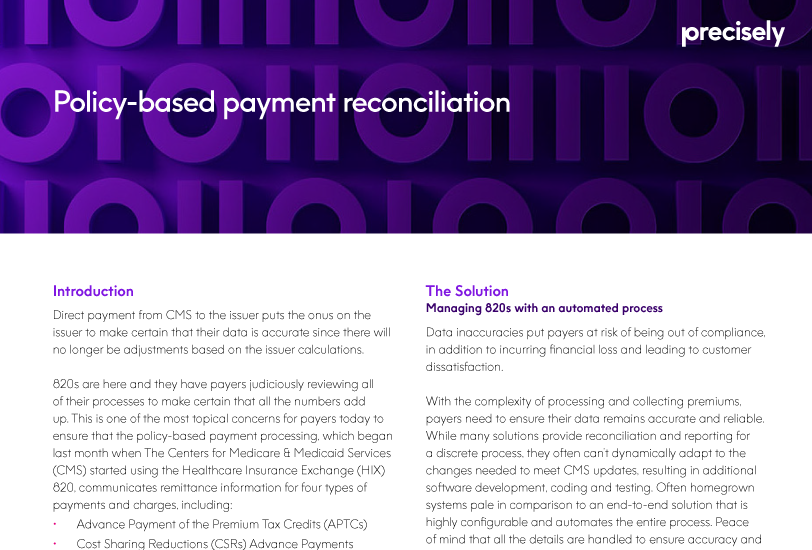White Paper
Policy-based Payment Reconciliation
Direct payment from CMS to the issuer puts the onus on the issuer to make certain that their data is accurate since there will no longer be adjustments based on the issuer calculations. The Centers for Medicare & Medicaid Services (CMS) the Healthcare Insurance Exchange (HIX) 820, which communicates remittance information for four types of payments and charges, including:
- Advance Payment of the Premium Tax Credits (APTCs)
- Cost Sharing Reductions (CSRs) Advance Payments
- Individual and SHOP User Fees
- Reinsurance, risk adjustment and risk corridor payments
The challenge with this process is the frequency with which the payer needs to reconcile their information with the government 820s. A payer will generally receive one HIX 820 per month via Electronic File Transfer (EFT). Headaches will result when errors, caused by manual or semi-automated processes, strain internal processes to keep up with the volume.
Read the full white paper to learn more.
